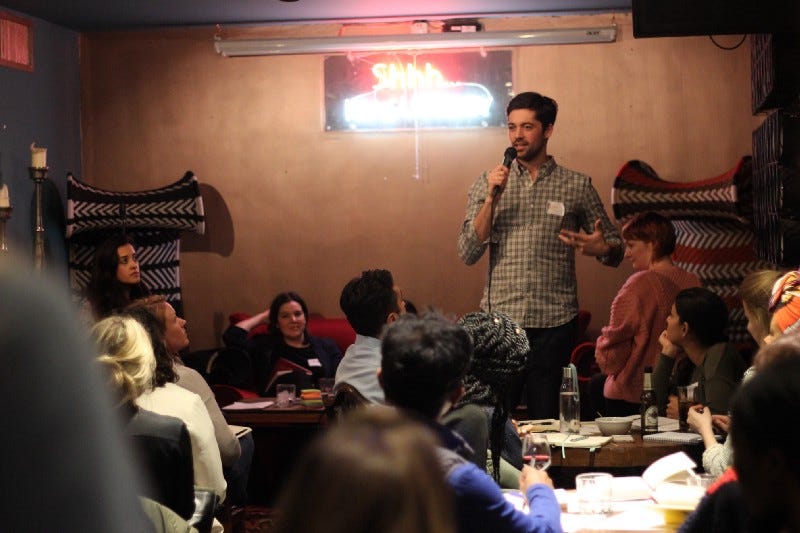Hobby vs Job vs Career vs Calling
This distinction should be common sense.
There’s a wonderful video of author Elizabeth Gilbert distinguishing between a hobby, job, career and vocation:
A hobby is something you do to keep life fun and interesting. With a hobby, the stakes are zero. You don’t need it to succeed. It’s simply something you enjoy doing. Hobbies are a reminder that you’re a human, not an automaton.
A job is an exchange of your time and effort for money. We live in a material world and money is a common currency to survive it. A job is doing a thing someone needs doing, and getting paid to do it.
A career is a job you’re passionate about. A career requires cultivation and sacrifices — which you’re willing to do because you believe in your career’s mission. Disliking a job might be okay because there’s a straightforward exchange — task for money. But disliking a career is a tragedy. Better off finding a new career, or just getting a job. “You should love a career, or not have one.”
A vocation is a calling. It’s sacred, mystical, maybe even spiritual. It’s something you can’t not do. Someone can take your job or a career away — but no one can take away a calling. No amount of money could stop you from pursuing a calling, nor seduce you to start a new one. It’s on a higher plane than hobby, job or career. Fortunate are those who can make their callings both a career and a job.
This distinction should be common sense.
And yet how often do we confuse the four? How many times do we want one to be the other? How often are we dishonest about where something truly sits in our lives?
In my early days of writing, I thought I wanted it to be my job or even my career. I thought I wanted to be a travel blogger.
I started writing during my 7-month sabbatical from IBM.
Quickly the realization set in: I did not want to be a travel blogger.
It wasn’t that I didn’t have the patience for fiddling with WordPress or designing email newsletters. Or that I didn’t have a knack for discovering local gems and getting whisked away by locals on adventures. I was discovering that writing, for me, transcended all of that.
Two months in, my writing turned from travelogue to philosophical. Writing proved to be cathartic, helping me process and reflect on my life experiences in semi-realtime. It helped me work out what I thought, what I believed, and what I was learning about life. Editing my writing and sharing it with an audience became about connection with others. I wasn’t just blogging — I was discovering something and sharing it; learning something and teaching it; noticing something and celebrating it. Writing became a powerful tool and I wanted to wield it wisely.
Occasionally a marketer would offer me $50 or some silly amount to guest post or to advertise a bullshit product on my site. I’ve always said no. Even when I didn’t have readers or money. I didn’t want to bastardize the writing by having to make a buck from it.
Had I the language for it, writing — or more broadly, noticing the external and internal world with eyes wide open and reflecting it back for others — was turning into a calling.
And yet the irony: my most fulfilling and best paid opportunities over the last seven years have come from my unpaid writing. Because I’ve poured time and energy into writing, I’ve become better at it. Increasingly, writing — an article, a talk, a workshop — has become part of my job and career.
Running a workshop at London Writers’ Salon.
No shame in a day job
My friend Parul quipped at our last London Writers’ Salon meetup:
“I’ve never met a writer who complains that they’re paid too much.”
I’d love to be paid for my words. Sometimes I do. Mostly I don’t. But I’ve come to peace with not needing to make money directly from them. I love being able to write what I want, for whom I want. To write what’s true and important. If that means writing forever sits in the calling box, so be it.
When Joan Baez was asked about advice for songwriters hoping to become as commercially successful as Baez, she replied:
“Get a day job. Get a day job. You have to be willing to roll with the punches. If you want to love your music, and not feel that you have to sell your ass down the river to get something going, you’re probably going to want to keep your day job.”
Ain’t no shame in a day job. I bet Liz Gilbert would say something similar.





